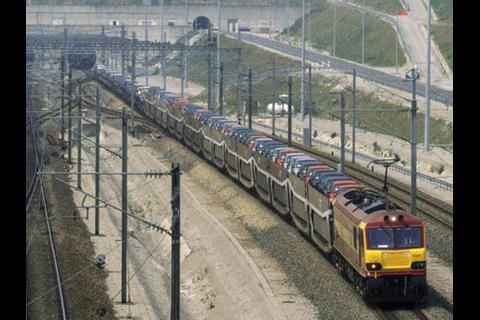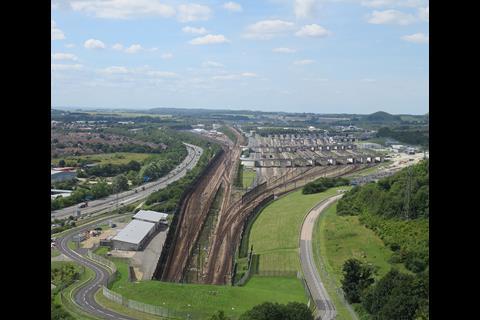UK: The relative reliability and security of rail freight and the availability of spare capacity through the Channel Tunnel could provide shippers with an attractive alternative to road haulage if the introduction of customs requirements causes increasing delays at the UK’s ports of entry following Brexit, according to a report prepared for the Rail Delivery Group by SNC-Lavalin.
Rail freight within the EU operates without the need for customs declarations, but this would no longer apply to the UK following Brexit in March 2019 and so customs facilities would be needed.
Rail freight through the Channel Tunnel is currently subject to safety and security inspections at the Fréthun yard in France and at Dollands Moor in the UK, but RDG said adapting the Dollands Moor site to act as a single rail checkpoint could lead to significant congestion and thus disruption to supply chains, particularly for ‘just in time’ manufacturing.
An alternative would be the creation of Railway Customs Areas, a legal concept in the Taxation (Cross-border Trade) Bill introduced to parliament as part of the Brexit process.
RDG said RCAs meeting customs requirements for international traffic could be created at existing UK rail freight terminals, using public and private sector investment. The customs authority would need to set out clearly the inspection, security and other requirements, and new communication channels between organisations in the supply chain would be needed.
Rail freight represents 6% of the total freight tonnage through the Channel Tunnel, with DB Cargo and GB Railfreight currently the only certified operators. Annual freight traffic through the tunnel peaked at 3·14 million tonnes in 1998, when more than 40 trains per day were using the route. However, performance issues, security concerns and strikes in France led to a decline, with 1·22 million tonnes of freight moved by 2 012 trains in 2017, predominantly imports into the UK.





